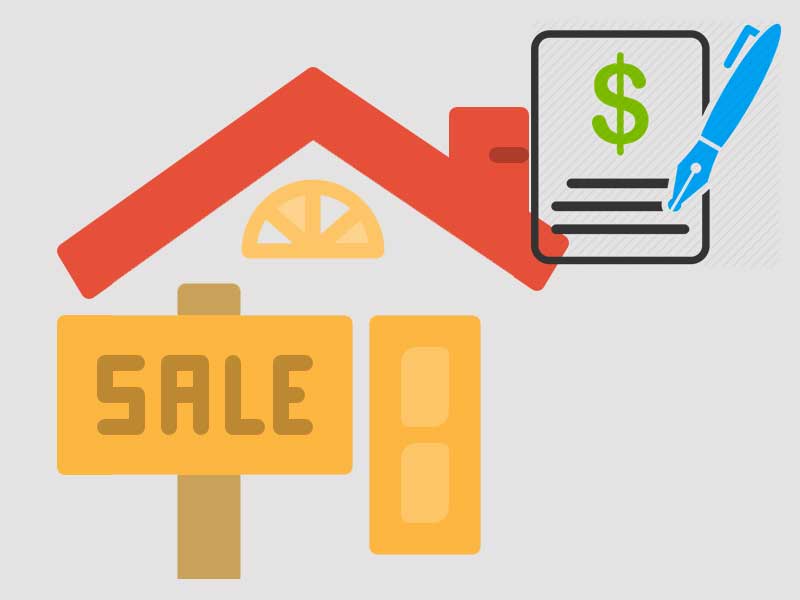You can’t buy any investment property without putting it under contract first. Have you been inching closer to your next deal but the thought of putting the property under contract give you the chills? Or even worse, did you walk away from a deal because you didn’t know how to do it properly?
Well read on then, we’ll break it all down to get you fully covered to successfully buy your next deal. Whether you’re planning to buy a house from a motivated seller, or listed in the MLS, this guide is for you.
In this post we’ll cover everything you need to put the property under contract and what contingencies to include.
When is a property under contract?
A property is under contract when a buyer has made an offer on the property and the seller has accepted the offer, but the purchase is not yet final. Both the buyer and seller must sign a purchase agreement to put the property under contract.
Once it’s under contract, all the contingencies must be met before the sale can be finalized. Such contingencies may include the buyer getting financing, doing inspection on the property, etc.
If either party fails to meet their contingencies, then the contract is breached and one party may back out of the contract.
We’ll look at the contingencies for different types of properties, and which ones you can make the most out of.
The contingencies depend on the type of seller. For example, a bank owned property will not allow you to assign the property. On the other hand, you may find that you can use the inspection period to find a wholesale buyer and do a simultaneous closing.
Depending on the type of seller, you may need proof of funds, or you my need a 10% earnest money deposit (down payment) to tie down the property.
How long can a property be under contract? – you can give yourself as much time as you need as long as the seller will allow it, and you won’t lose the property in the process, such as in foreclosure. Typically, 15 to 30 days is quite common. If you’re financing through a bank you need at least 45 days to be safe.
How do you put a property under contract?
If you are buying directly from a motivated seller, here are the steps required to put it under contract:
- You negotiate with the seller and agree on the price and other contingencies.
- You write a purchase agreement (contract) and present it to the seller.
- If the seller accepts the offer, they sign the agreement. Once both the buyer and the seller sign the contract, the property is formally under contract.
If you’re buying a property listed in the MLS,
- You or an agent writes an offer and present the purchase agreement to the listing agent.
- The listing agent presents the offer to the seller. If the seller accepts the agreement, the property is formally under contract once it’s signed by both the buyer and seller.
How to put a property under contract without a Realtor
When buying directly from a motivated seller, you may get a much better deal than when you’re buying from banks and agents.
Before the house is foreclosed on, the seller can sell it at any point, and pay off their mortgage.
When buying directly from the seller, you’ll need contracts that are specific to your state. I prefer to the Purchase and Sale Agreement mandated by our state’s real estate commission. These agreements cover everything, and you don’t need to be a Realtor to use them.
Contingencies to consider when putting a property under contract
Here are some of the most common contingencies:
Financing: – the buyer may make an offer based on securing financing. Of course this will depend on the type of seller. For example, if you’re buying from a motivated seller facing foreclosure, you’ll need to be a cash buyer and this contingency might not work.
Due diligence: – this allows buyer time to vet the property and make sure everything is good to go. The buyer needs to verify title ownership, mortgages, liens, etc.
Inspections: – during the diligence period, the buyer can request inspection, and the right to refute the contract if the inspection results are not acceptable.
Insurance: – In flood zones, the sale can be contingent on certain insurance terms.
Closing dates: – Buyer and seller agree on a closing date and the sale can be contingent on a certain time-line.
Considerations when executing the documents
Contracts vary by state, but they allow you to include all the things you consider necessary for the transaction. When you’re working directly with the seller to purchase the property, here are the primary things you need to address:
- Confirm the legal address and description are correct for each property
- If you plan to wholesale the property, remember to put the buyer with “and or assigns”. Some states do not allow assignment (such as Illinois).
- Purchase price needs to pay off any existing mortgages. Get a payoff quote from the mortgage company.
- Earnest money deposit (see below) – when buying from the seller directly, this is negotiable, and is always deposited with your title company or closing attorney. If the deal falls through, it should be refunded to you.
- The due diligence period should be enough for you to do title work, get your financing ready, getting insurance quotes, get inspection done, and any other information you need to complete the purchase. If the property is in foreclosure you also need to take this into account.
- Right to terminate – make sure the contract gives you the right to terminate the contract without penalty within a reasonable time frame.
- Personal property – if you’re negotiating personal property like fridge, extra structures like storage shed, etc, include them in the contract.
More about Earnest Money Deposit (EMD) in real estate contracts
Earnest money deposit is a deposit made in real estate transactions to the seller to demonstrate that the buyer is serious as a sign of good faith to buy the property. Earnest money gives the buyer extra time to get financing and conduct due diligence like title work, appraisal, etc.
By paying EMD, you’re putting skin in the game and asking the seller to get the property off the market.
- Deposit the EMD with the title company / closing attorney. Don’t give the money directly to the seller.
- EMD is negotiable especially if you’re buying directly from the seller. In most of my transactions I deposit $100 – $500.
- If you’re buying a bank-owned property, you may be required to put 1-10% down regardless of how good your offer is.
- EMD is tied to the due diligence period. Make sure you’re on top of your deadlines.
- If you or the seller cancels the contract, earnest money deposit is refundable. If you complete the transaction it goes towards the purchase of the property.
I hope this article has given you some insight into how to get your next investment property into contract. Good luck!



 >
>

More Leads Than You Can Handle?
Free Ebook reveals a "hidden" treasure trove of super motivated sellers ready sell their houses in your local market.
No other investors know about these hot leads. You can afford to get picky and take only the low hanging fruit closing the most profitable deals.
Enter your email below to receive this Ebook instantly.
Congratulations! Ebook has been sent to your email.